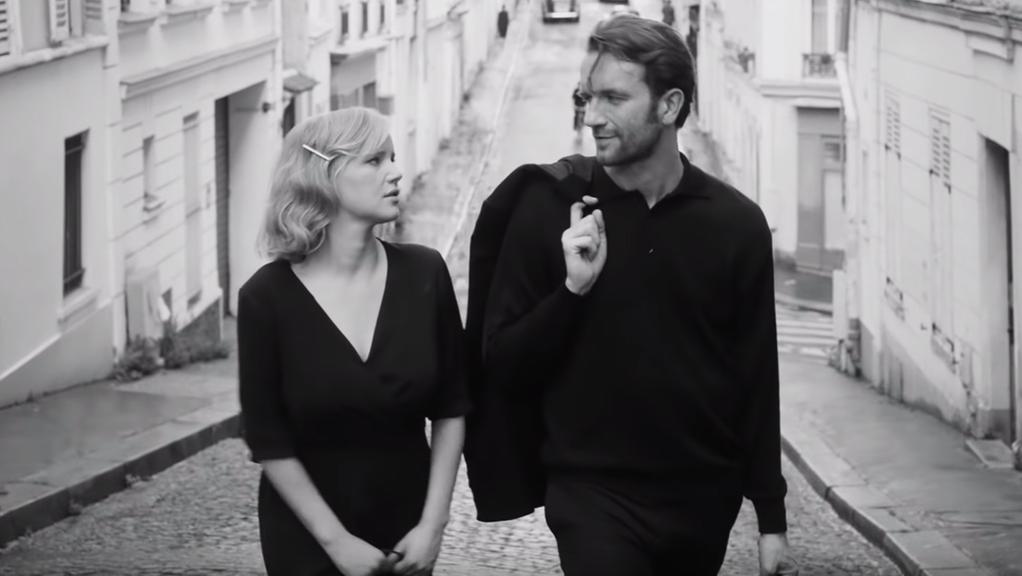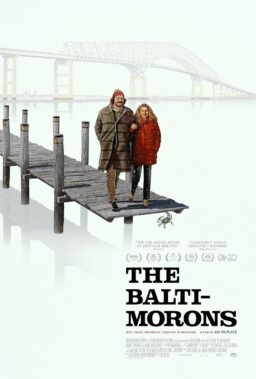The 2018 Polish film “Cold War,” which was nominated for the Best Foreign Language Film and Best Director Oscars, is a melancholic story about two star-crossed lovers struggling with their passionate but problematic relationship. Since they first met, they cannot help but be drawn to each other. But then they are also reminded of how incompatible they are from the beginning, and their tumultuous relationship is further complicated by the harsh social/political environment that surrounds them.
The story of the movie begins in Poland 1949, as we see a musician/ethnomusicologist named Wiktor Warski (Tomasz Kot) and his close colleague Irena (Agata Kulesza) traveling around rural regions for folk music research. While they diligently pay attention to any kind of folk music they happen to encounter, their accompanying government official Kaczmarek (Borys Szyc) is not particularly engaged, and there is a wry moment when the camera slowly moves to show him paying more attention to what he is eating now than a poignant folk song sung by a little girl.
Later, Wiktor and Irena get the full support from the Polish government because the Polish government wants to induce national pride via folk music, and they come to manage a national institution for folk music along with Kaczmarek. They commence an audition for numerous young people eager to further develop their musical talent, and that is how Wiktor encounters Zuzanna ‘Zula’ Lichoń (Joanna Kulig), a plucky lass who impresses him a lot with not only her beauty but also her personality.
When Wiktor approaches her, Zula does not resist while also reminding him that she is not an innocent girl at all. She pretended to be a peasant girl during the audition although she actually came from a city, and was once arrested for stabbing her father a few years ago. She gives Wiktor a short but straightforward description of what happened between her and her father, and it’s incidentally the most amusing line in the film.
Thanks to Wiktor and Irena’s efforts, their singers and dancers successfully do their first public performance in Warsaw, but then face a big change demanded by the Polish government. They want to concentrate on folk music as before, but the ministry of culture demands that they should focus more on delivering political messages to their audiences. As a result, their public performances become more political, as reflected by a big picture of Stalin during one public performance scene, and Irena is not so pleased about that as shown from her wordless exit at that point.
Wiktor initially goes along with this disagreeable change, but then Zula confides to him that she has been reporting on him to Kaczmarek because she had no choice from the beginning. When he goes to East Berlin along with others a few years later, he confides to Zula that he is going to escape to West Berlin, and he suggests that she should go along with him. But she eventually decides not to elope with him because, despite her love toward Wiktor, she is not so sure about whether she can be happy outside the Iron Curtain.

After settling in Paris, Wiktor lives with more freedom than before, but he still finds himself yearning for Zula even while being in a relationship with another woman. When Zula happens to come to Paris, he anxiously awaits her until she finally arrives, and they are happy to see that they remain attracted to each other as much as before, though she is soon going to leave Paris. When he later comes to Yugoslavia to see her again, he is forced to go back to Paris because of his current status as an exile not so welcomed behind the Iron Curtain. This leads to a heartbreaking moment for Zula, who cannot help but notice her love’s absence.
Several years later, Zula visits Wiktor again, and she decides to live with him in Paris. They have a rapturous moment of bliss together as confirming their love to each other, but, alas, it turns out that they cannot live together well in spite of their love. Feeling unhappier than before, Zula argues with Wiktor at one point for a rather trivial matter involved with her song, and that eventually culminates in a painful moment which leads to their bitter separation. Wiktor subsequently regrets, but Zula already goes back to Poland, and he comes to make a fateful decision in the name of love, which only causes more misery and unhappiness for both of them.
Considering the scope of its story in terms of space and time, the movie, which is partially inspired by the real-life story of the parents of director/co-writer Paweł Pawlikowski, could be as sprawling as those epic drama films by David Lean. Instead, it briskly hops from one moment to another, and I came to admire its economical storytelling more when I revisited the film. Although there are frequent condensations and ellipses in its narrative, its individual moments are organically strung together to give a simple but dynamic portrayal of the romantic relationship between its two main characters, while we often observe them from a distance.
In addition, the movie is quite impressive for its seemingly plain but impeccable mood and style, created by Pawlikowski and his cinematographer Łukasz Żal, who were respectively Oscar-nominated for Best Director and Best Cinematography (the movie lost to Alfonso Cuarón’s “Roma” (2018) in all of its three categories). They deliver a number of exquisite scenes to behold for their stark but crisp visual beauty. As he did in Pawlikowski’s previous film “Ida” (2013), Żal shot the film in black and white film of 1.33:1 ratio, and the frequent emphasis on the space above the characters in the film conveys to us the palpable sense of oppression around them.

In case of the movie’s soundtrack, it utilizes various music styles ranging from folk music to jazz and rock ’n roll, and a number of music performance scenes in the film are handled with care and precision. While “Dwa serduszka” powerfully functions as a recurring theme song throughout the film, there are also other memorable moments including the exuberant dance scene featuring “Rock Around The Clock,” and I especially like the appearance of a certain famous classic piece by Johann Sebastian Bach at the end of the film, which adds extra poignancy to the story.
Above all, the movie is steadily anchored by two strong performances at its center. While Joanna Kulig, who previously played a minor supporting role in “Ida,” is simply superlative in her soulful performance, Tomasz Kot, who looks as dashing as required, complements his co-performer well with his equally charismatic performance, and their scenes always spark with their natural chemistry. Deftly filling their archetype roles, Kulig and Kot effortlessly move along the ups and downs in their characters’ relationship, and are also bolstered by a few substantial supporting performers in the film including Borys Szyc and Agata Kulesza, who was unforgettable as the frigid aunt of the heroine in “Ida.”
In short, “Cold War” is another stunningly elegant work from Pawlikowski, and it’s definitely worthwhile to watch for many reasons including its detached but haunting romantic story. As a restrained arthouse film depending a lot on moods and nuances, the movie requires patience at first, but its many sublime moments will mesmerize you nonetheless. You will appreciate more what is masterfully achieved by Pawlikowski and his cast and crew, while also reflecting a bit on that complicated thing called love.











